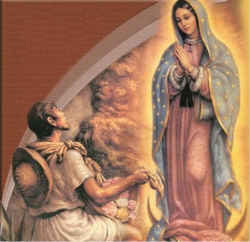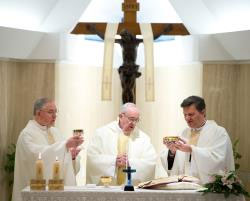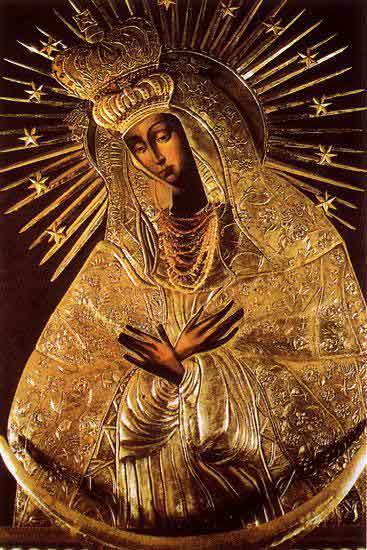Episode 1 – The School of Prayer: Reflections on the teachings of Pope Benedict XVI –  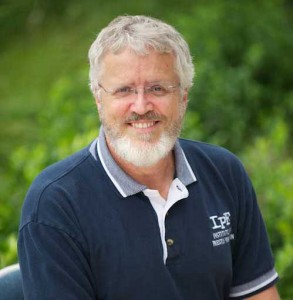  “Life without prayer has no meaning or points of reference”.  The relationship between the Father and the Son and the Holy Spirit  is so essential to our understanding of prayer.  The meaning of the Church.  Suffering the coming of the Holy Spirit.  Jesus is the face of God.  Do not be afraid, He will teach you happiness.
 “Life without prayer has no meaning or points of reference”.  The relationship between the Father and the Son and the Holy Spirit  is so essential to our understanding of prayer.  The meaning of the Church.  Suffering the coming of the Holy Spirit.  Jesus is the face of God.  Do not be afraid, He will teach you happiness.
[powerpress]
Deacon James Keating, PhD, the director of Theological Formation for the Institute for Priestly Formation, located at Creighton University, in Omaha.
From  Pope Benedict’s 1st audience on prayer:
Human life is a fabric woven of good and of evil, of undeserved suffering and of joy and beauty that spontaneously and irresistibly impel us to ask God for that light and that inner strength which support us on earth and reveal a hope beyond the boundaries of death.
In the examples of prayer of the various cultures which we have considered, we can see a testimony of the religious dimension and of the desire for God engraved on the heart of every human being, which receives fulfilment and full expression in the Old and in the New Testament. The Revelation, is in fact purifying and brings to its fullness man’s original yearning for God, offering to him, in prayer, the possibility of a deeper relationship with the heavenly Father.
At the beginning of our journey in the “school of prayer†let us now ask the Lord to illumine our minds and hearts so that the relationship with him in prayer may be ever more intense, affectionate and constant. Once again, let us say to him: “Lord, teach us to pray†(Lk 11:1).
For more information on the “Institute of Priestly Formation†and for other material available by Deacon Keating, just click here
Don’t forget to pickup a copy of “Communion with Christ†, it is one of the best audio sets on prayer…ever!
Check out Deacon Keating’s “Discerning Heart†page
Tags: beauty, catholic, catholic podcast, catholic prayer, cathollc spirituality, death, hope, suffering
This entry was posted on Tuesday, October 21st, 2014 at 8:24 am
You can follow any responses to this entry through the RSS 2.0 feed.
Prayer to Our Lady of Guadalupe
Dear Mother, we love you. We thank you for your promise to help us in our need. We trust in your love that dries our tears and comforts us. Teach us to find our peace in your Son, Jesus, and bless us every day of our lives.
Help us to build a shrine in our hearts. Make it as beautiful as the one built for you on the Mount of Tepeyac. A shrine full of trust, hope, and love of Jesus growing stronger each day.
Mary, you have chosen to remain with us by giving us your most wonderful and holy self-image on Juan Diego’s cloak. May we feel your loving presence as we look upon your face. Like Juan, give us the courage to bring your message of hope to everyone.
You are our Mother and our inspiration. Hear our prayers and answer us.
Amen.
Tags: Dear Mother, hope, Jesus, love, our lady of guadalupe, prayer
This entry was posted on Thursday, December 12th, 2013 at 6:12 am
You can follow any responses to this entry through the RSS 2.0 feed.
Dr. Matthew Bunson discusses the life, times and teachings of St. Ambrose of Milan (part 2)
[powerpress]
Dear brothers and sisters, I would like further to propose to you a sort of “patristic icon”, which, interpreted in the light of what we have said, effectively represents “the heart” of Ambrosian doctrine. In the sixth book of the Confessions, Augustine tells of his
meeting with Ambrose, an encounter that was indisputably of great importance in the history of the Church. He writes in his text that whenever he went to see the Bishop of Milan, he would regularly find him taken up with catervae of people full of problems for whose needs he did his utmost. There was always a long queue waiting to talk to Ambrose, seeking in him consolation and hope. When Ambrose was not with them, with the people (and this happened for the space of the briefest of moments), he was either restoring his body with the necessary food or nourishing his spirit with reading. Here Augustine marvels because Ambrose read the Scriptures with his mouth shut, only with his eyes (cf. Confessions, 6, 3). Indeed, in the early Christian centuries reading was conceived of strictly for proclamation, and reading aloud also facilitated the reader’s understanding. That Ambrose could scan the pages with his eyes alone suggested to the admiring Augustine a rare ability for reading and familiarity with the Scriptures. Well, in that “reading under one’s breath”, where the heart is committed to achieving knowledge of the Word of God – this is the “icon” to which we are referring -, one can glimpse the method of Ambrosian catechesis; it is Scripture itself, intimately assimilated, which suggests the content to proclaim that will lead to the conversion of hearts.
Thus, with regard to the magisterium of Ambrose and of Augustine, catechesis is inseparable from witness of life. What I wrote on the theologian in the Introduction to Christianity might also be useful to the catechist. An educator in the faith cannot risk appearing like a sort of clown who recites a part “by profession”. Rather – to use an image dear to Origen, a writer who was particularly appreciated by Ambrose -, he must be like the beloved disciple who rested his head against his Master’s heart and there learned the way to think, speak and act. The true disciple is ultimately the one whose proclamation of the Gospel is the most credible and effective.
Like the Apostle John, Bishop Ambrose – who never tired of saying: “Omnia Christus est nobis! To us Christ is all!” – continues to be a genuine witness of the Lord. Let us thus conclude our Catechesis with his same words, full of love for Jesus:Â “Omnia Christus est nobis! If you have a wound to heal, he is the doctor; if you are parched by fever, he is the spring; if you are oppressed by injustice, he is justice; if you are in need of help, he is strength; if you fear death, he is life; if you desire Heaven, he is the way; if you are in the darkness, he is light…. Taste and see how good is the Lord:Â blessed is the man who hopes in him!” (De Virginitate, 16, 99). Let us also hope in Christ. We shall thus be blessed and shall live in peace.
For more visit Vatican.va
Dr. Matthew Bunson, Senior Fellow of the St. Paul Center for Biblical Theology, is one of the United States’ leading authorities on the papacy and the Church.
His books include: The Encyclopedia of Catholic History; The Encyclopedia of Saints; Papal Wisdom; All Shall Be Well; Encyclopedia of the Roman Empire; and The Angelic Doctor: The Life and World of St. Thomas Aquinas; The Pope Encyclopedia; We Have a Pope! Benedict XVI, the first Catholic biography of the Holy Father in the English language; the Encyclopedia of U.S. Catholic History; Pope Francis. His also the editor of OSV’s “The Catholic Answer” magazine.
Tags: Church, heart, hope, matthew bunson
This entry was posted on Wednesday, October 30th, 2013 at 9:55 am
You can follow any responses to this entry through the RSS 2.0 feed.
“For the hand of the Lord was with him”
[powerpress]
an excerpt from today’s reflection by Don Schwager:
John the Baptist’s life was fueled by one burning passion – to point others to Jesus Christ and to the coming of God’s kingdom.  Scripture tells us that John was filled with the Holy Spirit even from his mother’s womb (Luke 1:15, 41) by Christ himself, whom Mary had just conceived by the Holy Spirit. When Mary visited her cousin Elizabeth, John lept in the womb of Elizabeth as they were filled with the Holy Spirit (Luke 1:41). The fire of the Spirit dwelt in John and made him the forerunner of the coming Messiah. John was led by the Spirit into the wilderness prior to his ministry where he was tested and grew in the word of God. John’s clothing was reminiscent of the prophet Elijah (see Kings 1:8). John broke the prophetic silence of the previous centuries when he began to speak the word of God to the people of Israel. His message was similar to the message of the Old Testament prophets who chided the people of God for their unfaithfulness and who tried to awaken true repentance in them. Among a people unconcerned with the things of God, it was his work to awaken their interest, unsettle them from their complacency, and arouse in them enough good will to recognize and receive Christ when he came.
Scripture tells us that John was filled with the Holy Spirit even from his mother’s womb (Luke 1:15, 41) by Christ himself, whom Mary had just conceived by the Holy Spirit. When Mary visited her cousin Elizabeth, John lept in the womb of Elizabeth as they were filled with the Holy Spirit (Luke 1:41). The fire of the Spirit dwelt in John and made him the forerunner of the coming Messiah. John was led by the Spirit into the wilderness prior to his ministry where he was tested and grew in the word of God. John’s clothing was reminiscent of the prophet Elijah (see Kings 1:8). John broke the prophetic silence of the previous centuries when he began to speak the word of God to the people of Israel. His message was similar to the message of the Old Testament prophets who chided the people of God for their unfaithfulness and who tried to awaken true repentance in them. Among a people unconcerned with the things of God, it was his work to awaken their interest, unsettle them from their complacency, and arouse in them enough good will to recognize and receive Christ when he came.
What is the significance of John the Baptist and his message for our lives? When God acts to save us he graciously fills us with his Holy Spirit and makes our faith come “alive” to his promises. Each and every day the Lord is ready to renew us in faith, hope, and love. Like John the Baptist, the Lord invites each of us to make our life a free-will offering to God. God wants to fill us with his glory all the days of our lives, from birth through death. Renew the offering of your life to God and give him thanks for his mercy and favor towards you.
“Lord Jesus, you bring hope and salvation to a world lost in sin, despair, and suffering. Let your grace refresh and restore your people today in the hope and joy of your great victory over sin and death.”
for the full reflection visit : Daily Reading and Meditation
Tags: death, don schwager, gospel of luke, hope, joy, sin, st john the baptist
This entry was posted on Monday, June 24th, 2013 at 12:58 am
You can follow any responses to this entry through the RSS 2.0 feed.
“For God so loved the world that gave his only Son that whoever believes in Him should not perish but have eternal life”: this was the affirmation at the center of Pope Francis’ homily on Wednesday at Mass in the Domus Sanctae Marthae with the staff of the Fabric of St. Peter. Cardinals Angelo Sodano and Angelo Comastri concelebrated, and the Italian Interior Minister Anna Maria Cancellieri also attended.Â
[powerpress]
“The Lord saves us by His love: not with a letter, nor with a decree, but with his love,†a love so great that it led him to send his Son, who, “became one of us, walked with us,†and this, he said, “saves us.†The Holy Father went on to explain that “salvation†means, “the recovery of that dignity, which we have lost,†the dignity of being children of God.This is a dignity that grows, said Pope Francis, “until our final encounter with Him,†adding, “this is the way of salvation, and this is beautiful,†he continued, “for [it is a way] that only love can [forge].†The Holy Father went on to say “We are worthy, we are men and women of hope: this is what it means to be saved by love.†The problem, he explained, is that sometimes we want to save ourselves, “and we believe we can do it,†for example basing our security on money – and we think: “I have money, I am secure, [I have it] all, there are no worries, I have dignity: the dignity of a rich person.†“This,†said Pope Francis, “is not enough,†adding, “Think of the parable of the Gospel, of the man who had the full granary, who said, ‘I’ll make another to get more, and then I’ll sleep soundly,’ and the Lord says, ‘You fool! This evening you will die ‘. That salvation is wrong, it is a temporary salvation, it is also apparent salvation.â€
The Holy Father went on to say that, at other times, “We think we save ourselves with vanity, with pride,†that, “We believe ourselves powerful …,†and that “We mask our poverty, our sins, with vanity, with pride … Even that ends,†he said, but, “true salvation is in the dignity that God gives back to us in the hope that Christ has given us at Easter. “Let’s make today an act of faith,†said Pope Francis, “[Let us say]: Lord, I believe. I believe in Your love. I believe that Your love has saved me. I believe that Your love has given me the dignity that I had not. I believe that Your love gives me hope.â€
Tags: faith, hope, love, Pope Francis
This entry was posted on Wednesday, April 10th, 2013 at 3:22 pm
You can follow any responses to this entry through the RSS 2.0 feed.
VATICAN CITY, 16 FEB 2011 (VIS) – In his general audience today, held in the Paul VI Hall, the Pope focused his attention on St. John of the Cross, “spiritual friend to St. Teresa and, with her, reformer of the Carmelite religious family. Proclaimed a Doctor of the Church by Pius XI in 1926, he is traditionally known as the ‘Doctor mysticus’, the Mystical Doctor”, the Holy Father said.
John was born to a poor family at Fontiveros near the Spanish town of Avila in 1542 and entered the Carmelite order at Medina del Campo. Ordained a priest in 1567, it was on the occasion of his first Mass that he met Teresa, “who explained to him her plan for the reform of the Carmelites”. In his renewal of his religious profession John took the name “of the Cross” and collaborated enthusiastically in the process of reform, something “which brought him great suffering”, and even led to his imprisonment following an unjust accusation. While preparing a journey to Mexico he fell seriously ill and died in December 1591. He was beatified by Clement X in
1675 and canonised by Benedict XIII in 1726.
St. John of the Cross, said Benedict XVI, “is considered one of most important lyric poets of Spanish literature. He wrote four major works: ‘Ascent of Mount Carmel’, ‘Dark Night of the Soul‘, ‘Spiritual Canticle’ and ‘Living Flame of Love‘.
“In his ‘Spiritual Canticle’ St. John outlines the soul’s journey of purification”, the Holy Father added. “The ‘Living Flame of Love’ continues in the same line, describing in greater detail the condition of union with God. … ‘Ascent of Mount Carmel’ outlines the spiritual itinerary from the point of view of a progressive purification of the soul, which is necessary in order to scale the heights of Christian perfection, symbolised by the summit of Mount Carmel”.
The Pope continued his catechesis by explaining how “the ‘Dark Night of the Soul’ describes the ‘passive’ aspect; in other words, God’s contribution to the process of purifying the soul. Human effort alone, in fact, is incapable of reaching the deepest roots of a person’s bad inclinations and habits. It can halt them but not eradicate them completely. To do this, we need a special action by God which radically purifies the spirit and disposes it to the union of love with Him“.
“The rate of increase of faith, hope and charity goes hand in hand with the work of purification and with progressive union with God, until attaining transformation into Him. When this goal is reached, the soul is immersed in Trinitarian life itself. … This is why the Mystical Doctor held that there is no true union of love with God that does not culminate in Trinitarian union”.
The Pope completed his remarks by asking whether the life of St. John of the Cross has anything to say to everyday Christians, or whether it is an example only for the few select souls who can follow the path of purification and mystical ascesis. “The journey with Christ, travelling with Christ … is not an additional weight to the already sufficiently-heavy burden of our lives”, he said. “It is something totally different. … It is a light, a power which helps us carry our everyday burden. … Allowing ourselves to be loved by Christ is the light which helps us to carry the daily burden, and sanctity is not a task we must accomplish on our own, a very difficult task. … Let us ask God to help us become saints, to allow ourselves to be loved by God, which is the vocation and true redemption of us all”.
Published by VIS – Holy See Press Office – Wednesday, February 16, 2011
Tags: ascent of mount carmel, carmelite order, carmelites, dark night of the soul, doctor of the church, family, heart, holy father, hope, love, Mystical Doctor, purification of the soul, spanish literature, spiritual friend, st. john of the cross, union with god
This entry was posted on Friday, December 14th, 2012 at 12:19 am
You can follow any responses to this entry through the RSS 2.0 feed.
“His mercy is on those who fear him from generation to generation”
[powerpress]
an excerpt from today’s reflection by Don Schwager: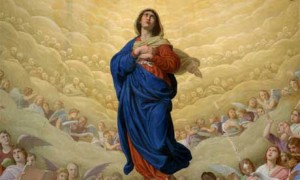
How strong is your hope in the promises of God? Mary is a model of faith and hope for us. And she is among “the first-fruits” of “all those who belong to Jesus” and who share in his triumph (1 Corinthians15:20-24). There is a venerable tradition dating back to the early church which marks Mary’s “falling asleep” (Feast of Dormition in many Eastern churches) and her heavenly birthday when she was received into heaven. Her reception into heaven is seen as a sign to all believing Christians of the promise Jesus made that we too would be received into paradise. At the last supper Jesus told his disciples that he would prepare a place for them in his Father’s house. “And when I go to prepare a place for you, I will come again and will take you to myself, that where I am you may be also” (John 14:3).
What enabled Mary to grow in faith and to persevere in hope in the face of obstacles and trials? The Gospel of Luke reveals the presence and power of the Holy Spirit in Mary’s life. When Elizabeth and Mary greeted one another they were filled with the Holy Spirit and with a joyful anticipation of the fulfilment of God’s promise to give a Savior. John the Baptist, even before the birth of the Messiah, pointed to his coming and leapt for joy in the womb of his mother as the Holy Spirit revealed to him the presence of the King to be born. The Holy Spirit is God’s gift to us to enable us to know and experience the indwelling presence of God and the power of his kingdom. The Holy Spirit is the way in which God reigns within each of us. Mary accepted her mission with uncompromising faith and obedience. She acted with unwavering trust and faith because she believed that God would fulfill the word he had spoken. Her great hymn of praise echoes the song of Hannah (see 1 Samuel 2:1-10) and proclaims the favor of the Lord:Â God exalts the lowly and he fills the hungry. The Holy Spirit is ever ready to renew your faith and hope in God’s promises and to make you strong in love for God and your neighbor. Do you live in the joy and confidence of God’s indwelling presence with you through his Holy Spirit?
“Lord Jesus, fill me with your Holy Spirit and give me joy in seeking you more closely. Increase my faith in all your promises, my hope in the joys of heaven, and my love for You as my All.”
for the full reflection visit : Daily Reading and Meditation
Tags: faith, heaven, holy spirit, hope, the assumption
This entry was posted on Wednesday, August 15th, 2012 at 12:06 am
You can follow any responses to this entry through the RSS 2.0 feed.
Mother of those who place their hope in Solidarity, pray for us.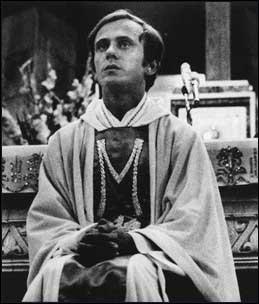
Mother of those who are deceived, pray for us.
Mother of those who are betrayed, pray for us.
Mother of those who are arrested in the night, pray for us.
Mother of those who are imprisoned, pray for us.
Mother of those who suffer from the cold, pray for us.
Mother of those who have been frightened, pray for us.
Mother of those who were subjected to interrogations, pray for us.
Mother of those innocents who have been condemned, pray for us.
Mother of those who speak the truth, pray for us.
Mother of those who cannot be corrupted, pray for us.
Mother of those who resist, pray for us.
Mother of orphans, pray for us.
Mother of those who have been molested because they wore your image, pray for us.
Mother of those who are forced to sign declarations contrary to their conscience, pray for us.
Mother of mothers who weep, pray for us.
Mother of fathers who have been so deeply saddened, pray for us.
Mother of our suffering country _____, pray for us.
Mother of our faithful country _____, pray for us.
We beg you, O mother in whom resides the hope of millions of people, grant us to live in liberty and in truth, in fidelity to you and to your Son. Amen.
Tags: blessed mother, blessed virgin mary, catholic, catholic podcast, catholic prayer, cathollc spirituality, hope, liberty, mother, prayer, suffering, truth
This entry was posted on Wednesday, October 19th, 2011 at 6:00 am
You can follow any responses to this entry through the RSS 2.0 feed.
Heart of Hope Part 1 – The role of the Cross in the Christian life, suffering, prayer and and how it conquers evil
[powerpress = “deacon-james-keating”]
Deacon James Keating, PhD, the director of Theological Formation for the Institute for Priestly Formation, located at Creighton University, in Omaha, is making available to â€Discerning Hearts†and all who listen, his series of programs entitled “The Heart of Hopeâ€.
This extraordinarily popular series explores the work of suffering in the Christian life and how God can use it to transform the heart of the individual and the world. 
The “Heart of Hope† tackles a very tough subject…the gift of suffering in the Christian life. Deacon Keating guides us well.
.
For more information on the “Institute of Priestly Formation†and for other material available by Deacon Keating, just click here
Don’t forget to pickup a copy of “Communion with Christ†, it is one of the best audio sets on prayer…ever!
Check out Deacon Keating’s “Discerning Heart†page
Tags: catholic, catholic podcast, catholic prayer, Catholic Spirituality, cathollc spirituality, deacon, evil, hope, james keating, prayer, suffering, the cross
This entry was posted on Thursday, September 8th, 2011 at 4:32 pm
You can follow any responses to this entry through the RSS 2.0 feed.
 There’s somethng that happens when you not only read and recite but when you also hear…when you listen deeply and profoundly. The private revelation which was given to St. Bridget of Sweden that day in the chapel of the church of St. Paul’s Outside the Walls in Rome over 600 years ago is still one of the most poignant and compelling moments in all mystical experiences. The Church has deemed this worthy of belief to the extent that it can edify one’s faith rather than hurt; that indeed if practiced and nurtured it could open the heart for an outpouring of grace.
There’s somethng that happens when you not only read and recite but when you also hear…when you listen deeply and profoundly. The private revelation which was given to St. Bridget of Sweden that day in the chapel of the church of St. Paul’s Outside the Walls in Rome over 600 years ago is still one of the most poignant and compelling moments in all mystical experiences. The Church has deemed this worthy of belief to the extent that it can edify one’s faith rather than hurt; that indeed if practiced and nurtured it could open the heart for an outpouring of grace.
The “Pieta Prayers” of St. Bridget of Sweden can be a challenging practice in today’s world. To help foster a greater understanding and devotion to Our Lord’s Passion, Discerning Hearts has produced a MP3 Downloadable audio which we hope will assist you in some way.
[powerpress = “Devotionals-Prayers”]Â (featuring Bruce McGregor and Denise Wharton)
For the complete texts, promises and ecclesial advisements click here
Tags: 15 prayers of st bridget, catholic, catholic podcast, catholic prayer, cathollc spirituality, devotion, Discerning Hearts, hope, mp3 downloadable, mystic, mystic of the Church, mystical experiences, pieta, prayers, private revelation, st bridget of sweden, Sweden, women of the middle ages
This entry was posted on Saturday, September 18th, 2010 at 5:12 pm
You can follow any responses to this entry through the RSS 2.0 feed.
Part 2 of the discussion with Gregory Erlandson. Pope Benedict XVI and the Sexual Abuse Scandal is an important contribution to the understanding and healing of the great heartache that has inflicted the Church over the last 30 years. Talking with Gregory Erlandson was a great opportunity to realize the nuisances of what got us here, but also the response and hope that leads us to the future.
[powerpress]
Tags: catholic, catholic podcast, catholic prayer, cathollc spirituality, Church, Gregory Erlandson, hope, osv, our sunday visitor, pope benedict xvi, Sexual Abuse Scandal
This entry was posted on Thursday, September 9th, 2010 at 11:08 pm
You can follow any responses to this entry through the RSS 2.0 feed.



